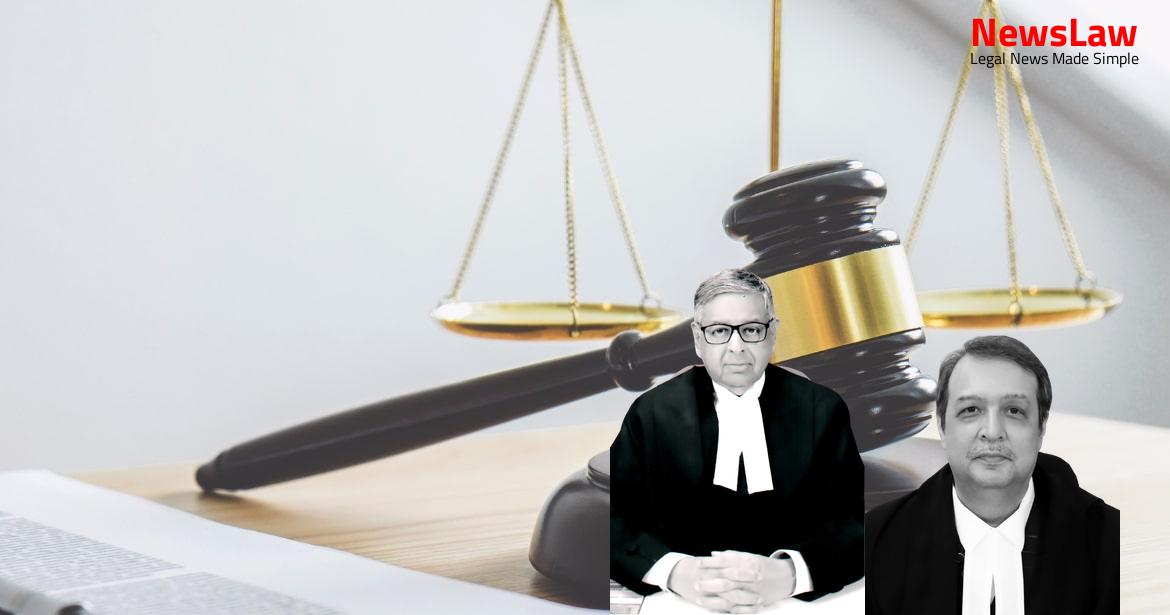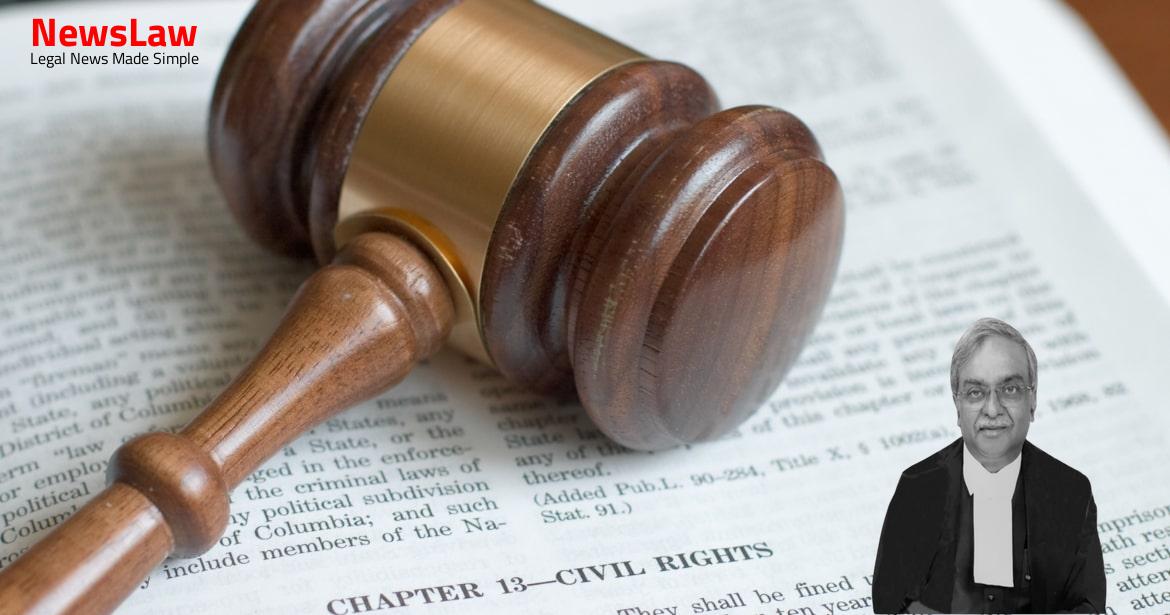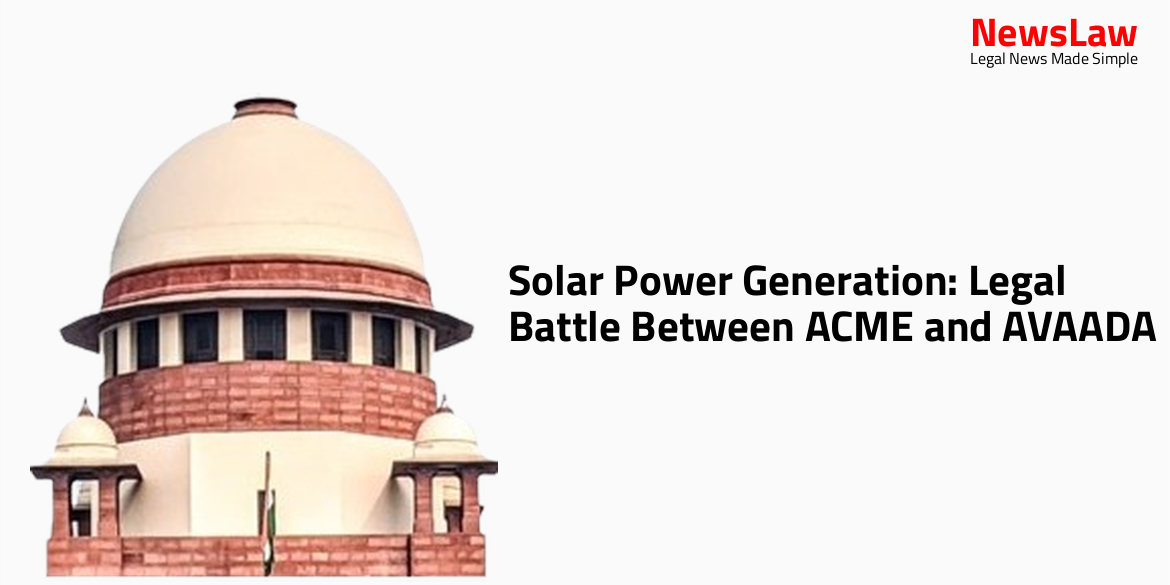In a recent judgment by the Supreme Court of India, the case of Union of India & Anr. vs. Jahangir Byramji Jeejeebhoy was analyzed concerning a prolonged legal battle over possession of a property in Pune Cantonment. The judgment, delivered by Justice J.B. Pardiwala, addressed crucial issues of delay, fairness, and the equitable application of law. This blog delves into the details of the case, examining the arguments presented by both the petitioner and the respondent, along with the court’s analysis and conclusion.
Facts
- Defendant ordered to pay future mesne profits at the rate of Rs. 316 per month from the date of filing of the suit.
- Defendant directed to pay costs of the suit to the plaintiffs.
- Appellants challenged the judgment and decree by filing Civil Appeal No. 850 of 1987.
- The appeal was dismissed by the 8th Additional District Judge, Pune on 29.08.1992.
- Appellants filed Petition No. 2307 of 1993 before the High Court of Bombay under Article 227 of the Constitution of India.
- High Court declined to condone the delay of 12 years and 158 days in filing the restoration application on 09.07.2019.
- On 02.05.1987, Civil suit No 2599 of 1981 was allowed, granting possession of the suit property to the appellants.
- The appellants were directed to deliver vacant possession by 30.6.1987 and pay Rs. 17,383/- to the plaintiffs as damages.
- On 18.03.2016, the appellants were served notice in the execution proceedings by the Executing Court.
- On 20.08.2018, the appellants filed an application to set aside the order passed by the Executing Court.
- On 26.11.2013, the respondent filed Execution Petition No 16 of 2014.
- On 10.10.2006, Petition No 2307 of 1993 was dismissed for non-prosecution.
Also Read: Adani Power Rajasthan Ltd. vs. Rajasthan Discoms: Late Payment Surcharge Dispute
Issue
- The only question for consideration is whether the High Court erred in passing the impugned order.
Also Read: Legal Analysis: Ownership Dispute and Validity of Will Deed
Arguments
- The learned Attorney General for India representing the appellants argued that there is a strong case on merits deserving condonation of the delay of 12 years and 158 days.
- Emphasis was placed on the fact that the suit property in Pune cantonment belongs to the Union of India, and the respondent held it on old grant lease.
- The Attorney General highlighted that the respondent admitted ownership only of the superstructure, not the land itself, which belongs to the Government.
- Concerning the delay in filing the restoration application, the Attorney General did not provide a satisfactory explanation.
- Appellant’s counsel argued that no sufficient case has been presented for condoning the long delay of over 12 years in filing the restoration application.
- The counsel emphasized that the appellants failed to provide a convincing reason for the delay.
- It was contended that the appeal lacks merit and should be dismissed.
- The counsel highlighted the importance of considering the suitor’s explanation if it is not indicative of malice or delay tactics.
Also Read: Analysis of Curative Jurisdiction in Legal Dispute
Analysis
- The Court emphasized that courts do not have unlimited discretionary powers when considering applications for condonation of delay under Section 5 of the Limitation Act.
- The Court stated that it will not consider the merits of the matter unless convinced that sufficient cause has been shown for condonation of a long delay.
- The Department’s lack of diligence in prosecuting the matter promptly was highlighted by the Court.
- The Court noted discrepancies in the Department’s explanations for delays in legal proceedings, indicating a lack of genuine difficulties.
- Emphasis was placed on the principle of weighing the scales of justice for both parties in condoning delays.
- The Court highlighted that delay condonation should not be a mechanical process, especially for government departments.
- The Court criticized the lack of explanation for delays and errors made by the Department in legal proceedings.
- A suggestion was made to the Department to hand over possession of the suit property to the respondent to consider condoning the delay and proceeding with the case.
- The High Court’s suggestion to consider restoring the Petition if possession is handed over to the respondent was noted.
- The Court rejected the application for condonation of a 12-year and 158-day delay, citing lack of diligence and absence of genuine difficulties as reasons.
- The Department failed to apply for a certified copy of the judgment in a timely manner.
- Unending delay in availing remedies can lead to uncertainty and anarchy.
- The judgment emphasizes the importance of parties seeking their remedy promptly.
- The court has the discretion to condone delay if a sufficient cause is shown.
- Proof of sufficient cause is a condition precedent for condonation of delay.
- Exercise of discretionary powers should be within reasonable bounds and based on objective reasoning.
- Concepts like a liberal approach should not override the substantial law of limitation.
- Negligence or inaction of a party should be taken into consideration in condonation of delay applications.
- The law of limitation fixes a lifespan for legal remedies and should not be bent for the benefit of a few.
- The court should not legalize injustice and must remove injustice by a pragmatic approach.
- The terms ‘sufficient cause’ should be understood in the context of obtaining fact-situation.
- Bona fides of a party seeking condonation of delay is a significant factor.
- Lack of bona fides may impact the decision to condone delay.
- A liberal approach should be reasonable and not completely unfettered.
- Reasonable and acceptable reasons for delay are necessary, excuses like procedural red tape are not sufficient.
- The High Court was exercising its supervisory jurisdiction under Article 227 of the Constitution of India.
- Delay should not be excused as a matter of generosity, as established in numerous decisions of the Court.
- Rendering substantial justice should not cause prejudice to the opposite party.
- The appellants failed to prove they were reasonably diligent in prosecuting the matter.
- The vital test for condoning the delay was not satisfied in this case.
Decision
- The appellant’s appeal has been dismissed.
- The pending application, if any, has been disposed of accordingly.
- The rule has been discharged.
- No costs have been awarded.
- The order was passed by D.G. Deshpande, J. on 10.10.06.
- Mr. D.S. Mhaispurkar represented Respondents 1A to 1C and 2.
- The petition was dismissed and the interim order was vacated.
Case Title: UNION OF INDIA Vs. JAHANGIR BYRAMJI JEEJEEBHOY (D) THROUGH HIS LR (2024 INSC 262)
Case Number: C.A. No.-004672-004672 / 2024



